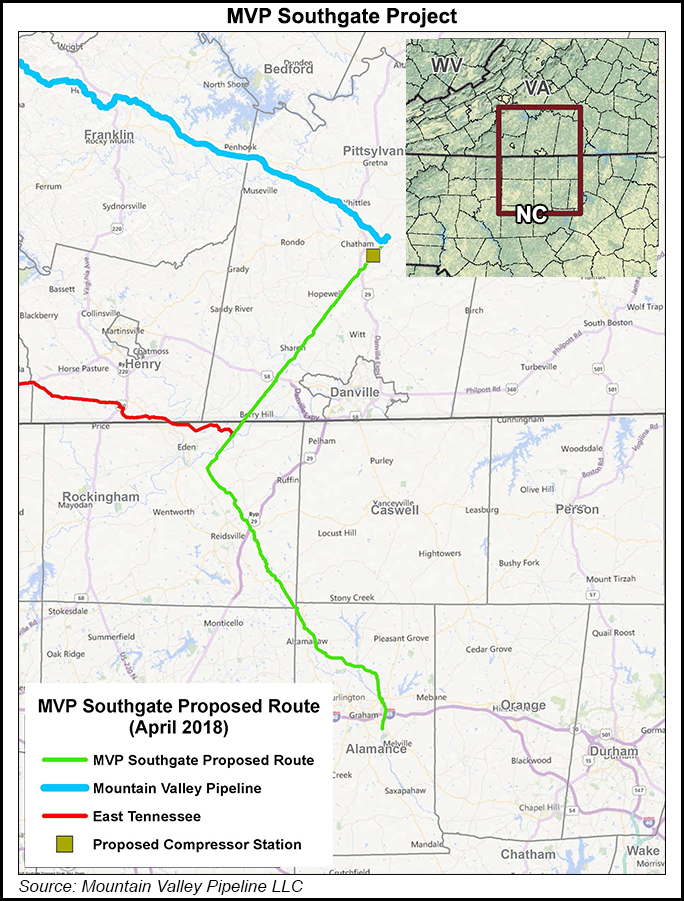Infrastructure | NGI All News Access | Regulatory
FERC Issues EIS Schedule for MVP’s Southgate Expansion
FERC expects to issue a final environmental impact statement (FEIS) by the end of this year for the Mountain Valley Pipeline LLC (MVP) Southgate Project, a proposed 73-mile add-on that would extend the 300-mile Appalachia-to-Southeast natural gas project from Virginia into North Carolina.

The FEIS is due to be issued on Dec. 19, with a 90-day federal authorization decision deadline scheduled for March 18, 2020, according to a filing by the Federal Energy Regulatory Commission [CP19-14]. A draft EIS is expected to be issued in July.
Southgate would provide 300,000 Dth/d to North Carolina-based PSNC Energy, a local distribution company and Scana Corp. subsidiary. The utility has signed a 20-year precedent agreement for the capacity.
The project proposes constructing about 31 miles of 24-inch diameter pipe from the MVP mainline in Pittsylvania County, VA, to the Dan River Interconnect with PSNC in Rockingham County, NC; about 42 miles of 16-inch diameter pipeline from the Dan River Interconnect to an interconnect with PSNC Energy facilities at Haw River in Alamance County, NC; a 28,915 hp compressor station in Pittsylvania County; and an interconnect with East Tennessee Natural Gas Transmission LLC, along with other facilities and equipment.
MVP filed with FERC in November for a certificate to build and operate Southgate, and it held an open season in April 2018 to gauge potential interest in the project.
MVP, a joint venture of EQT Midstream Partners LP, NextEra US Gas Assets LLC, Con Edison Transmission Inc., WGL Midstream and RGC Midstream LLC, continues to be confronted by legal and regulatory hurdles to its construction of a 300-mile greenfield project to transport 2 Bcf/d from West Virginia into Virginia to an interconnect with Transco (aka, the Transcontinental Gas Pipe Line) in Pittsylvania County.
Since construction began on the MVP mainline last year, the project has encountered a number of legal setbacks that have delayed start-up and driven up costs, including a temporary work stoppage after a federal appeals court pulled key authorizations included in its FERC certificate.
Earlier this month, Virginia’s State Water Control Board decided not to revoke MVP’s Section 401 water quality certification that the state issued in 2017, eliminating one element of regulatory uncertainty facing the project.
© 2024 Natural Gas Intelligence. All rights reserved.
ISSN © 1532-1231 | ISSN © 2577-9877 |
